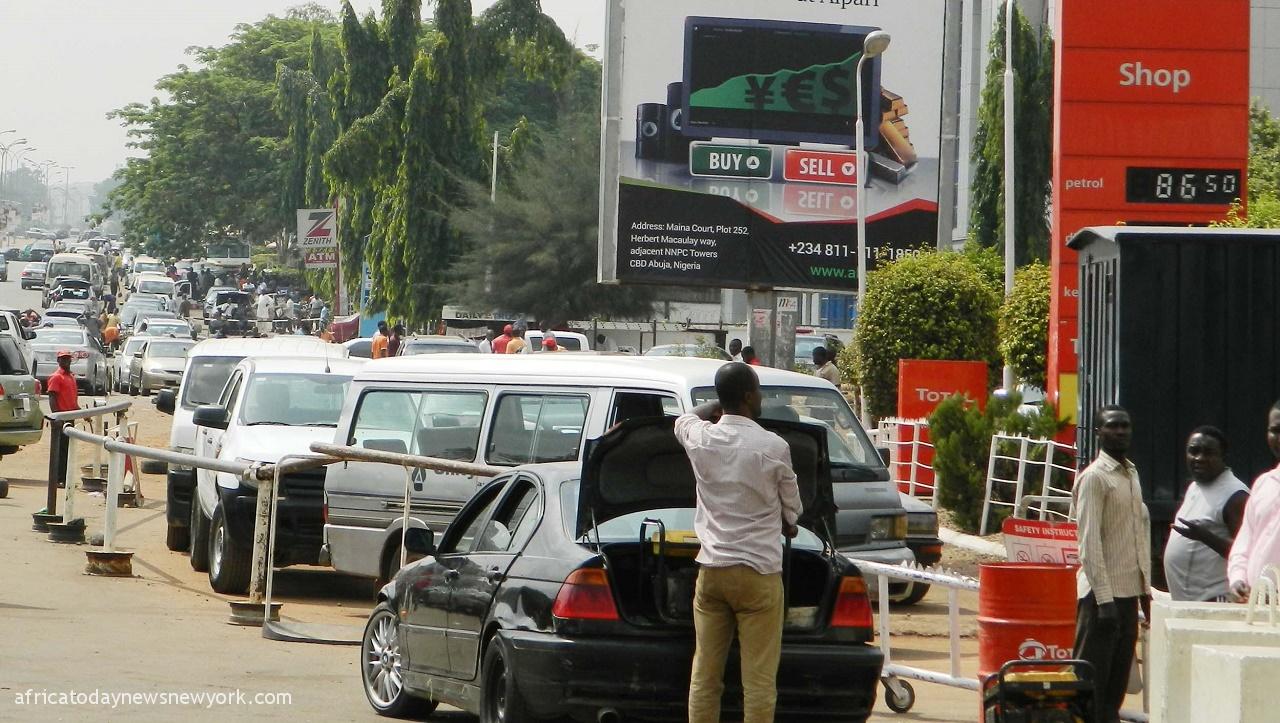President of the Petroleum and Natural Gas Senior Staff Association of Nigeria (PENGASSAN), Festus Osifo, has offered clarification on the reasons behind the fuel scarcity experienced across the country, particularly in Lagos and Abuja.
In interview on Channels Television’s Sunrise Daily which was monitored by Africa Today News, New York, he pointed out the issue of ‘bridging funds’ between the Nigerian Midstream and Downstream Petroleum Regulatory Authority (NMDPRA) and truck drivers who deliver the Premium Motor Spirits (PMS).
‘The NMDPRA are the ones administering a bridging fund. At a particular time, they agreed with truck drivers that the bridging fund is going to be about N10 per litre depending on the destination you’re going to all over the country.
Read Also: PENGASSAN Vows To Address Casualisation In Oil, Gas Industry
‘As at when they agreed, the cost of diesel was about N250 so it was fashionable and the N10 was a bit okay but today, the cost of diesel is over N700. It has tripled. So, the expectations from the tanker drivers is that since the cost has gone up, instead of paying me N10.40kobo as the case may be, you have to multiply it by three.
‘At the end of the day, that is the first problem’.
Contrary to the belief that PMS is scarce, the PENGASSAN boss said that there’s at least 2 billion litres in stock.
‘As at today, we have close to 2 billion litres of PMS, so the problem is not the stock,” he said, explaining that while the stock is available, most of the truck drivers are not willing to move these products “because of the previous problem I just enumerated”.
‘One of the issues again is that today, NNPC is the sole importer of PMS, so they import PMS into the country, and this PMS is brought to the high sea, so they rent some smaller vessels to bunker the PMS and take to the various tank farms or depots. So, if it’s the NNPC depots and you are loading from the NNPC depots, you are going to pay abut N148 as the ex-depot price. But some of the PMS are also stored in private depots and those private depots don’t sell to the retailers for 148; they add some premium to it, at the end the of the day, they sell between 152, 155, 160 and 162.
‘So, if they sell at that amount, it will now be difficult for the retailer to go and sell at the same amount.’
Meanwhile, President Muhamamdu Buhari has defended the Federal Government’s decision to keep paying fuel subsidies.
In a response to Bloomberg, the President said the effects of removing fuel subsidies would have been too harsh on the Nigerian people.
He said the government is working on boosting local capacity in order to stem the inflationary pressures that are likely to be triggered by the removal of subsidies.

